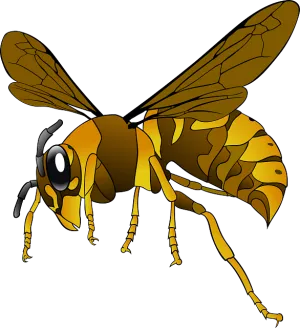Insects pose significant challenges for homeowners, demanding a deep understanding of their behaviors. Traditional chemical pesticides have drawbacks and are being replaced by eco-friendly, sustainable insect control services that offer long-term solutions. Modern strategies include biological controls, monitoring systems, sealing entry points, and preventive measures. These innovative approaches reduce current insect populations and prevent future infestations. While DIY tactics can help, professional insect control services provide tailored, effective treatments with specialized knowledge and equipment. Proactive measures like sealing entry points, regular cleaning, and natural repellents significantly prevent pest infestations. Seasonal variations impact common pests, requiring targeted strategies. Preventing reinfestation through comprehensive strategies ensures sustained protection against insects.
Insects can cause significant damage to homes and property, and their presence can pose health risks. Understanding common pest behaviors is the first step towards effective insect prevention. This article explores various strategies for managing insects, from traditional methods with their pros and cons to modern eco-friendly solutions. We delve into professional insect control services, DIY tactics for homeowners, seasonal considerations, and long-term reinfestation prevention. Discover how to choose the best approach using tailored insect control services for your needs.
Understanding Common Insect Pests and Their Behaviors

Insects are a common problem for many homeowners, and understanding their behaviors is key to effective insect control services. Different species have distinct habits and preferences, which can vary based on the time of year and environmental factors. For instance, ants are drawn to sweet substances and tend to enter homes in search of food, often following scent trails left by other ants. Termites, on the other hand, are attracted to wood and cellulose-based materials, making them a significant concern for structural integrity, especially in damp areas.
Mosquitoes, known for their biting behavior, breed in stagnant water and are most active during dawn and dusk. Regular elimination of standing water around the property can significantly reduce their presence. Roaches, adaptable and quick reproducers, thrive in dark, humid places, often entering homes through small cracks and crevices. Effective insect control services require identifying these pests’ entry points and implementing tailored strategies to address each specific behavior and habitat.
Traditional Methods of Insect Control: Advantages and Disadvantages

Traditional methods of insect control, such as the use of pesticides and chemical sprays, have long been the go-to solution for many homeowners and businesses. These quick fixes offer immediate results in eliminating insect infestations. However, they come with drawbacks. One significant disadvantage is their potential harm to non-target organisms, including beneficial insects, pets, and human health if not used properly. Additionally, these chemicals can persist in the environment, leading to long-term ecological impact and contributing to water contamination.
Despite their effectiveness in the short term, these traditional insect control services often fail to address the underlying causes of infestations. They merely mask the symptoms, failing to prevent recurring issues. Moreover, many modern consumers are becoming increasingly conscious of health and environmental concerns, driving a shift towards more sustainable and eco-friendly insect prevention solutions.
Modern Insect Prevention Solutions: An Overview

In today’s world, modern insect prevention solutions have evolved to meet the ever-changing needs of both residential and commercial properties. Gone are the days of relying solely on chemical pesticides, which often come with harmful side effects and environmental concerns. Today, professional insect control services offer a wide array of eco-friendly and targeted methods to manage and eliminate insect infestations effectively.
These innovative solutions range from advanced biological controls, such as introducing natural predators or parasites, to the use of sophisticated monitoring systems that detect and track insect activity in real time. Additionally, modern techniques emphasize prevention through sealing entry points, proper sanitation, and the strategic placement of traps. This holistic approach ensures not only the immediate reduction of insect populations but also long-term protection against future infestations, providing homeowners and business owners with peace of mind.
Eco-Friendly Approaches to Bug Extermination

In today’s world, where environmental consciousness is at an all-time high, many homeowners and businesses are seeking eco-friendly alternatives for insect control services. Traditional pest control methods often rely on toxic chemicals that can have detrimental effects on both the environment and human health. As a result, there’s a growing trend towards sustainable and natural bug extermination techniques. One such approach involves the use of beneficial insects, such as ladybugs and lacewings, which feed on garden pests like aphids and mealybugs, helping to keep them at bay without causing harm to plants or other non-target organisms.
Another eco-friendly method is integrated pest management (IPM), a strategy that focuses on preventing pest problems through a combination of techniques including regular monitoring, cultural practices, mechanical controls, biological controls, and the application of least-toxic chemical options when necessary. IPM not only reduces the reliance on synthetic pesticides but also promotes a balanced ecosystem within your property, ensuring long-term pest prevention and minimizing environmental impact. These natural insect control services are gaining popularity among those who prioritize both effective bug management and preserving the health of our planet.
Professional Insect Control Services: When to Hire Experts

Many homeowners attempt to manage insects on their own, using over-the-counter pesticides and DIY methods. However, professional insect control services offer a more comprehensive and effective solution, especially for severe infestations or when prevention is key. Hiring experts in insect control provides access to specialized knowledge and state-of-the-art equipment not readily available to the average person.
Professionals are trained to identify specific insects, understand their behavior, and locate hidden entry points. They employ eco-friendly methods and treatments tailored to individual needs, ensuring safety for both residents and the environment. Regular inspections and preventative measures can be a game-changer in keeping insects at bay. Timing is crucial; seeking expert help early on prevents minor issues from becoming major, costly problems that require more intensive treatments.
Homeowner's Guide: DIY Insect Prevention Tactics

As a homeowner, taking proactive measures against insects is essential for maintaining a comfortable and healthy living environment. While professional insect control services offer robust solutions, DIY tactics can significantly contribute to preventing pest infestations. Start by sealing entry points like cracks, gaps around doors, and windows with caulk or weatherstripping. Regularly clean your home, especially cooking areas and garbage bins, to eliminate food sources that attract insects.
Consider using natural repellents such as citronella candles, lavender, mint, or cedarwood oils. Planting these around your property can help deter common pests. Additionally, maintain a pristine lawn and garden, cutting grass regularly and removing standing water, as these are breeding grounds for mosquitoes. Regular inspections and prompt cleaning of any visible insect traces will create an unwelcome environment for pests, reinforcing your DIY insect prevention efforts.
Seasonal Considerations for Effective Insect Management

In effective insect management, seasonal considerations play a pivotal role for homeowners and businesses alike. The timing of treatments and the types of insects targeted vary significantly across seasons. For instance, during spring and summer, common pests like mosquitoes, ants, and ticks proliferate, necessitating regular applications of insect control services to mitigate their impact on outdoor activities and health. In contrast, fall and winter focus on preventing overwintering pests such as rodents, spiders, and certain insects that seek shelter indoors.
Understanding these seasonal dynamics allows for proactive insect control strategies. Homeowners should consult with professional pest management services to develop tailored plans that address specific regional pests. Regular inspections and maintenance throughout the year ensure that any potential infestations are identified early, preventing more extensive and costly problems. By incorporating seasonal considerations into their insect control practices, individuals can maintain a comfortable and pest-free living environment.
Preventing Reinfestation: Long-Term Strategies

Preventing reinfestation is a key aspect of long-term insect control services, ensuring that homes and businesses remain pest-free over time. This involves implementing strategies that address the root causes of insect infestations. One effective approach is to seal entry points and potential hiding places, such as cracks, gaps around pipes and cables, and openings in screens or doors. Regular inspections and maintenance are crucial; identifying and eliminating signs of insects early on can prevent a full-blown infestation.
Additionally, maintaining cleanliness and proper hygiene plays a significant role. Insect control services often recommend reducing food waste, promptly cleaning up spills, and ensuring regular disposal of garbage to minimize attractive environments for pests. Landscape management is another vital strategy; keeping vegetation trimmed and removing potential breeding grounds like stagnant water can deter insects from seeking shelter in close proximity to buildings.
